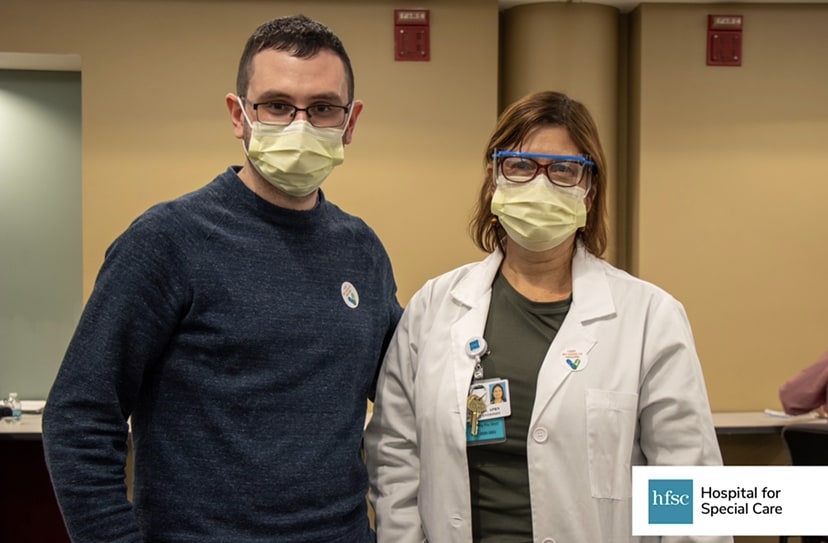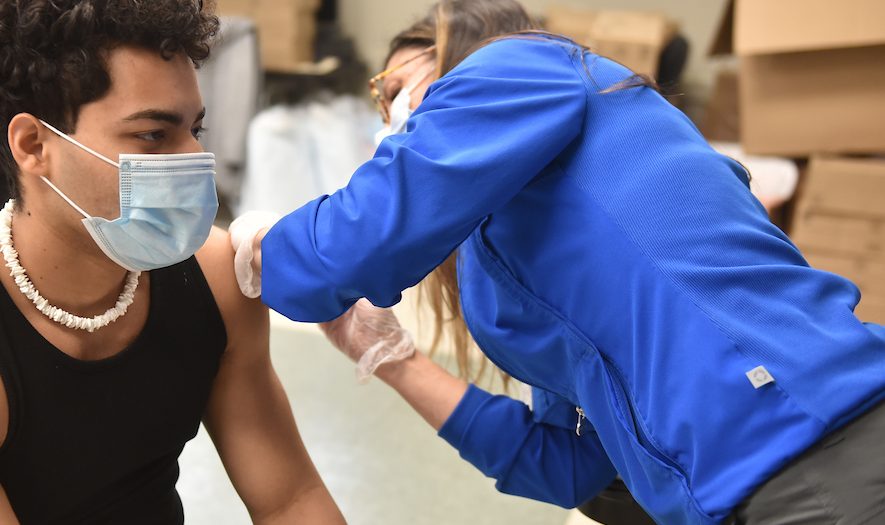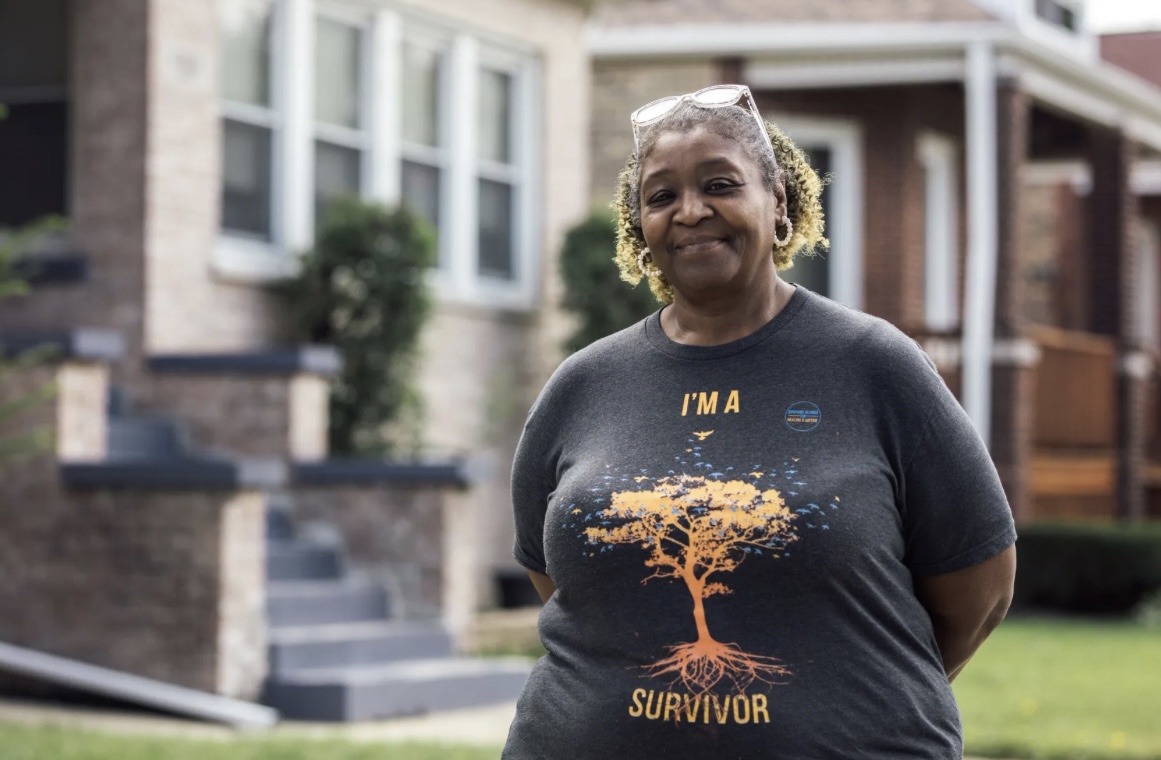The Centers for Disease Control (CDC) reports that over 172 million Americans (approximately 67-percent) of the adult population, have received at least one dose of the COVID-19 vaccine; about 156 million have received both doses (approximately 47-percent).
And the numbers keep climbing thanks to some states, Connecticut included, making great strides in vaccinating residents; 68-percent of the state population has received at least one shot.
Still, while the rate of new coronavirus cases and deaths has slowed down in the state, health care workers like Vivian Almario are watching more dangerous variants closely.
Almario, a nurse (MSN, APRN) with the Infectious Disease Unit at Hospital for Special Care (HFSC) in New Britain has been at the forefront of the pandemic. “We are in a much better place now (than a year ago), but if we want to continue to be safe – we all need to be vaccinated”, she said. HFSC is one of only two long-term acute-care (LTAC) hospitals in the nation serving both adults and children.
Despite the overall positive performance in Connecticut, some of the state’s biggest cities, and some rural areas, vaccination rates lag. In Hartford, for example, more than 37-percent of residents are fully vaccinated. In New Haven, the rate is just over 47-percent reports ctpost.
As COVID-19 unfolded last year, the Hispanic-Latino community was more at risk because many live in multi-generational homes with limited space; many are essential workers in businesses with a higher likelihood of being exposed; and many experience unequal treatment in the health care system.
So, it should not have been a surprise that, when the vaccine was finally made available, Hispanics-Latinos were once again left out. As Ken Barela, chief executive officer at the Hispanic Health Council, stated, “Latino and Black residents have suffered the highest coronavirus infection rates, but are not receiving the vaccine as much as white people.”
Access to the vaccine has certainly been a barrier for this community; so has language. “Latinos are overwhelmed by information (in English)”, said Almario. “Education (of COVID-19) should also be in Spanish.”
Almario, a native of Colombia who immigrated to the U.S. in 1981, credits drawing from her background and experience in building relationships with a community that distrusts medical institutions that do not understand their culture and language. “Getting information one-on-one from someone who looks like you, and speaks your language helps people who are apprehensive.”
But not all Hispanics-Latinos have a direct medical source to get information from. “Sometimes the best thing to do is go to a local community center that provides information in the language you are most comfortable with”, says Leonardo Marquez, a nurse (BS, RN) who serves as unit manager of Hospital for Special Care’s Satellite Unit located on Trinity Health’s Mount Sinai Rehabilitation Center campus in Hartford.

Marquez is Alamario’s son, and like his mother promotes the need for people to be well informed about COVID-19 in order to protect themselves and those around them.
Keeping patients safe who visit Hartford Satellite, HSFC, or the other facilities throughout the state, including staff, is a priority for Marquez and Almario. “Everyone who comes in gets their temperature taken, including myself, there are masks available for those who need them, and security guards who ask screening questions”, said Marquez.
The safety precautions are a result of a year-long experience with the coronavirus. “We had to review our policies, routines”, said Almario recalling the critical situation in the first weeks of the pandemic. “Patients who were already infected with COVID were coming to us; we applied the CDC recommendations to keep everyone safe and informed.”
Following the CDC guidelines helped Almario, Marquez, and their teams manage what many times were a frightening situation for health frontline workers and their patients. It’s those protocols that both nurses believe will help residents overcome the virus as the state and the country open up once again.
“Just because someone is vaccinated, it is important to wear masks in certain situations as recommended (by the CDC)”, said Marquez. “Getting vaccinated isn’t just a responsibility for ourselves, but for our families, our communities”, Almario agreed.
The best way to combat COVID-19 both say is to be well-informed. Almario remembers a patient she spoke with at the height of the pandemic who walked in nervous about the unknown and left her clinic confident with the new information he took with him to his family.
Almario’s areas of expertise are Internal Medicine in Chronic Care Units, Bilingual interpreter for patients and families hospital-wide. Her education includes MS, Nursing, University of Connecticut and BS, Nursing, University of Hartford. She is Wound Care certified.
Marquez holds a bachelor’s degree in both Health Sciences and Nursing and is currently pursuing his master’s degree in nursing. He joined Hospital for Special Care in 2018 as a floor nurse and moved into a leadership role at the Satellite Unit of the long-term acute care hospital in 2020.
Both Marquez and Almario are residents of Manchester.
For more information on Hospital for Special Care (HFSC), call 860-223-2761 or visit their website hfsc.org




